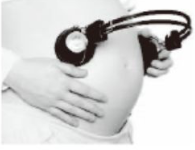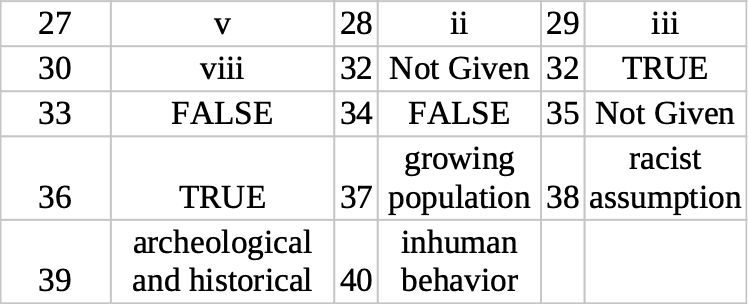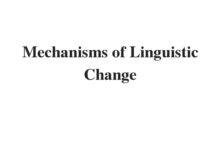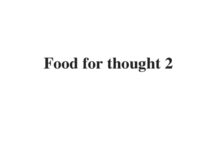Table of Contents
The Mozart Effect

Passage
A. Music has been used for centuries to heal the body. In the Ebers Papyrs (one of the earliest medical documents, circa 1500 B.C.), it was recorded that physicians chanted to heal the sick (Castleman, 1994). In various cultures, we have observed singing as part of healing rituals. In the world of Western medicine, however, using music in medicine lost popularity until the introduction of the radio. Researchers then started to notice that listening to music could have significant physical effects. Therapists noticed music could help calm anxiety and researchers saw that listening to music could cause a drop in blood pressure. In addition to these two areas, music has been used with cancer chemotherapy to reduce nausea, during surgery to reduce stress hormone production, during childbirth, and in stroke recovery (Castleman, 1994 and Westley, 1998). It has been shown to decrease pain as well as enhance the effectiveness of the immune system. In Japan, compilations of music are used as medication, of sorts. For example, if you want to cure a headache or migraine, the album suggested Mendelssohn’s “Spring Song,” Dvorak’s “Humoresque,” or part of George Gershwin’s “An American in Paris” (Campbell, 1998). Music is also being used to assist in learning, in a phenomenon called the Mozart Effect.
B. Frances H. Rauscher, Ph.D., first demonstrated the correlation between music and learning in an experiment in 1993. His experiments indicated that a 10 minute dose of Mozart could temporarily boost intelligence. Groups of students were given intelligence tests after listening to silence, relaxation tapes, or Mozart’s Sonata for Two Pianos in D Major for a short time. He found that after silence, the average IQ score was 110, and after the relaxation tape, scores rose a point. After listening to Mozart, however, the scores jumped to 119 (Westley, 1998). Even students who did not like the music still had an increased score on the IQ test. Rauscher hypothesized that “listening to complex, non-repetitive music, like Mozart, may simulate neural pathways that are important in thinking” (Castleman, 1994).
C. The same experiment was repeated on rats by Rauscher and Hong Hua Li from Stanford. Rats also demonstrated enhancement in their intelligence performance. These new studies indicate that rats that were exposed to Mozart showed “increased gene expression of BDNF (a neural growth factor), CREB (a learning and memory compound), and Synapsin I(a synaptic growth protein)” in the brain’s hippocampus, compared with rats in the control group, which heard only white noise (e.g. the whooshing sound of a radio tuned between stations)

D. How exactly does the Mozart affect work? Researchers are still trying to determine the actual mechanisms for the formation of these enhanced learning pathways. Neuroscientists suspect that music can actually help build and strengthen connections between neurons in the cerebral cortex in a process similar to what occurs in brain development despite its type. When a baby is born, certain connections have already been made – like connections for heartbeat and breathing. As new information is learned and motor skills develop, new neural connections are formed. Neurons that are not used will eventually die while those used repeatedly will form strong connections. Although a large number of these neural connections require experience, they also must occur within a certain time frame. For example, a child born with cataracts cannot develop connections within the visual cortex. If the cataracts are removed by surgery right away, the child’s vision develops normally. However, after the age of 2, if the cataracts are removed, the child will remain blind because those pathways cannot establish themselves.
E. Music seems to work in the same way. In October of 1997, researchers at the University of Konstanz in Germany found that music actually rewires neural circuits (Begley, 1996). Although some of these circuits are formed for physical skills needed to play an instrument, just listening to music strengthens connection used in higher-order thinking. Listening to music can then be thought of as “exercise” for the brain, improving concentration and enhancing intuition.
F. If you’re a little skeptical about the claims made by supporters of the Mozart Effect, you’re not alone. Many people accredit the advanced learning of some children who take music lessons to other personality traits, such as motivation and persistence, which is required in all types of learning. There have also been claims of that influencing the results of some experiments.
G. Furthermore, many people are critical of the role the media had in turning an isolated study into a trend for parents and music educators. After Mozart Effect was published to the public, the sales of Mozart CDs stayed on the top of the hit list for three weeks. In an article by Michael Linton, he wrote that the research that began this phenomenon (the study by researchers at the University of California Irvine) showed only a temporary boost in IQ, which was not significant enough to even last throughout the course of the experiment. Using music to influence intelligence was used in Confucian civilization and Plato alluded to Pythagorean music when he described is ideal state in The Republic. In both of these examples, music did not have caused any overwhelming changes, and the theory eventually died out. Linton also asks, “If Mozart’s Music were able to improve health, why was Mozart himself so frequently sick? If listening to Mozart’s music increases intelligence and encourages spirituality, why aren’t the world’s smartest and most spiritual people Mozart specialists?” Linton raises an interesting point, if the Mozart Effect causes such significant changes, why isn’t there more documented evidence?
H. The “trendiness” of the Mozart Effect may have died out somewhat, but there are still strong supporters (and opponents) of the claims made in 1993. Since that initial experiment, there has not been a surge of supporting evidence. However, many parents, after playing classical music while pregnant or when theft children are young, will swear by the Mozart Effect. A classmate of mine once told me that listening to classical music while studying will help with memorization. If we approach this controversy from a scientific aspect, although there has been some evidence that music does increase brain activity, actual improvements in learning and memory have not been adequately demonstrated.
Questions
Questions 1-5
Reading Passage 1 has eight paragraphs A-H.
Which paragraph contains the following information?
Write the correct letter A- H in boxes 1-5 on your answer sheet.
1. Music influences brain development of baby.
2. Popularity of public to the introduction of Mozart Effect
3. Description of the pioneer experiment of a person
4. Music is helpful as a healing method in some places
5. Learning needs other qualities though
Questions 6-8
Complete the summary below.
Choose NO MORE THAN THREE WORDS from the passage for each answer. Write your answers in boxes 6-8 on your answer sheet.
In the experiment carried out by Frances Rauscher, participants were immersed in the music for a …………6…………..period of time before they were tested. Rauscher suggested that enhancement of their performance is related to the…………7…………..nature of Mozart’s music. After that, another parallel experiment was also conducted on…………8…………..
Questions 9-13
Do the following statements agree with the information given in Reading Passage 1
In boxes 9-13 on your answer sheet, write
| TRUE if the statement is true |
| FALSE if the statement is false |
| NOT GIVEN if there is no information not given in the passage |
9. Music has the power to improve people’s brain performance according to the passage.
10. All neural connections are built up after a baby’s born instead of the time he or she had born.
11. There is no one who questions Mozart Effect so far.
12. Michael Linton carried out further experiment on Mozart’s life to support his viewpoint
13. Not sufficient evidence supports Mozart Effect from the very first experiment till now.
Answers



